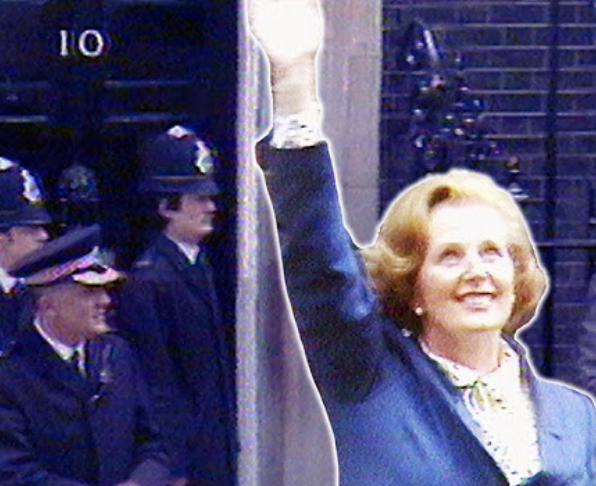In May 1979, Margaret Thatcher became the United Kingdom’s first female Prime Minister, a historic milestone following the Conservative Party’s victory in the general election on May 3. On May 6, she officially entered 10 Downing Street, launching an 11-year premiership that would profoundly reshape British society, economy, and politics. The election marked a turning point, driven by widespread dissatisfaction with the Labour government under James Callaghan, whose tenure had been marred by economic stagnation and the “Winter of Discontent” (1978–79). This period of crippling strikes and public unrest fueled voter demand for change, which Thatcher’s campaign skillfully harnessed.
Thatcher’s Conservatives secured 339 seats in Parliament, compared to Labour’s 269, with a 43.9% vote share, reflecting a clear mandate. Her platform emphasized economic reform, individual responsibility, and reducing the power of trade unions, appealing to a populace frustrated by inflation, unemployment, and declining national confidence. The election followed a no-confidence vote against Callaghan’s government in March 1979, the first such defeat since 1924, underscoring Labour’s vulnerability.
Upon arriving at Downing Street, Thatcher delivered a brief but memorable statement to the press, often paraphrased from St. Francis of Assisi: “Where there is discord, may we bring harmony. Where there is error, may we bring truth. Where there is doubt, may we bring faith. Where there is despair, may we bring hope.” This was not a formal speech but a carefully crafted message, signaling her intent to unify a divided nation and restore optimism. The words, widely broadcast, set a tone of conviction and purpose, aligning with her image as a decisive leader.
The significance of Thatcher’s election extended beyond her gender. It marked a decisive shift from the post-war consensus of state intervention and collectivism toward economic liberalization, privatization, and deregulation. Her policies, later known as “Thatcherism,” prioritized free markets and individual enterprise, fundamentally altering Britain’s economic landscape. While her reforms would spark both admiration and controversy, her 1979 victory signaled a new era, breaking the mold of traditional British governance.
The context of the election was critical. Britain in the late 1970s faced soaring inflation, high unemployment, and a sense of national decline. The Winter of Discontent, with its images of uncollected trash and striking workers, crystallized public frustration. Thatcher’s campaign capitalized on this, presenting her as a resolute figure capable of confronting entrenched interests, particularly the unions. Her personal story—rising from a grocer’s daughter to political leader—reinforced her narrative of meritocracy and determination.
Thatcher’s entry into Downing Street on May 6, 1979, was a moment of symbolic and practical importance. It represented not just a change in government but a broader ideological shift that would influence global politics. Her leadership style, marked by unwavering conviction, earned her the nickname “Iron Lady.” The 1979 election was a defining moment, setting the stage for a transformative and polarizing era in British history.


Leave A Comment